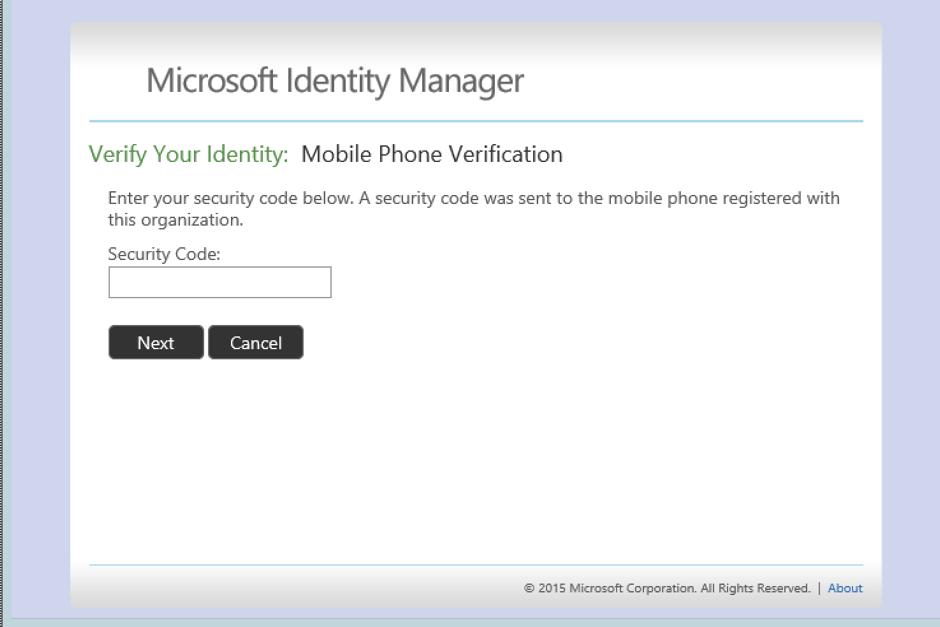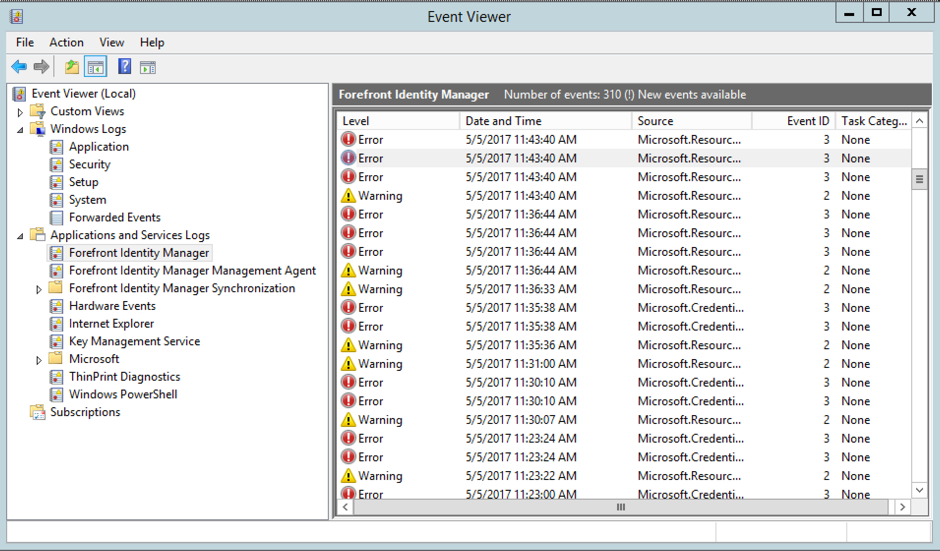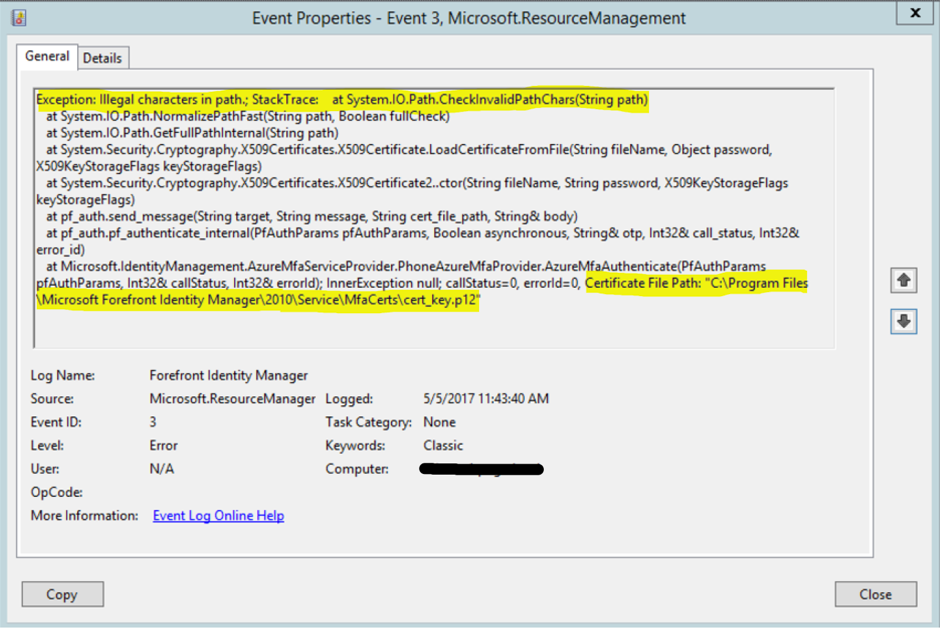First published at https://nivleshc.wordpress.com
Last week, I was at a client site, extending their Microsoft Identity Manager (MIM) 2016 Self Service Password Reset Solution so that it could use Azure MultiFactor Authentication (MFA). This is an elegant solution since instead of using Questions and Answers to authenticate yourself when trying to reset your password, you can use One Time Passwords (OTP), sent as a security code via a text message to your registered mobile device.
I followed the steps as outlined in https://github.com/Microsoft/MIMDocs/blob/master/MIMDocs/DeployUse/working-with-self-service-password-reset.md to enable Azure MFA, and everything went smoothly.
I then proceeded to testing the solution.
Using the Password Registration Portal, I registered my mobile number against my test user account.
I then opened the Password Reset Portal, entered my test user username and proceeded to wait for the text message from Microsoft Azure with the security code, so that I could enter it in the next screen.

I waited and waited (for at least 5 min), unfortunately the text message didn’t arrive 🙁
Ok, troubleshooting time.
On my Microsoft Identity Manager 2016 Service Server, I opened the Windows EventLogs viewer and then expanded the section for Forefront Identity Manager event logs. Aha, I was on the right track as I saw a lot of errors reported.

I went through the event log entries and found one which looked abit odd. The error essentially said that the certificate path contained illegal characters.

I couldn’t make much sense of this error, so I opened the MfaSettings.xml file to check, and I quickly realised my mistake. I had included the certificate file path within quotes!
I quickly removed the unnecessary ” “ , saved the MfaSettings.xml file and restarted my testing process.
I went through the password reset process again, and yet again, I didn’t receive any text message from Microsoft Azure with the security code 🙁
I re-checked the eventlogs and noticed the same Exception: Illegal characters in path for the Certificate File Path error. Thinking that I might have forgotten to save the previous modification to the MfaSettings.xml file, I opened the file to confirm. The quotes were no where to be seen! Alas, the plot thickens my dear Watson!
I couldn’t find any explanation for this behaviour. Then, thinking that maybe the MIM server was having issues accessing the long filepath for the Certificate file, I moved the certificate file to a folder that was closer to the root of the C:\ drive, updated the MfaSettings.xml file appropriately and repeated my testing.
Again, no text message 🙁
Checking the event logs, I noticed the same dreaded Exception: Illegal characters in path for the Certificate File Path error again.
However, looking closer at the error, I realised that the file path was reported as C:\Program Files\Microsoft Forefront Identity Manager\2010\Service\MfaCerts\cert_key.p12, which wasn’t correct since I had moved the certificate file to another folder and updated the MfaSettings.xml file accordingly!
Suddenly I had that light bulb moment 😉 Updates to the MfaSettings.xml file were not being read by the MIM Server! This could only mean that it wasn’t monitoring this file for any changes, quite the opposite to what I had initially assumed!
To force MIM to re-read the MfaSettings.xml file, I restarted the Forefront Identity Manager Service service and went through my password reset testing process again.
Eureka! This time around, I received the text message from Microsoft Azure with the security code! Checking the Event logs, I couldn’t find any new occurrences of the Exception: Illegal characters in path for the Certificate File Path error. Hurray!
I completed the password reset process and confirmed that the password for my test account had indeed been changed.
I hope this post helps others.
BTW, below is a sample of the MFASettings.xml file (for security reasons, the keys have been scrambled, however as seen below, none of the values need quotes)
<?xml version=”1.0″ encoding=”utf-8″ ?>
<SubscriberKeys>
<LICENSE_KEY>1A3FED2C1BZA</LICENSE_KEY>
<GROUP_KEY>a1b234c567890e123456gh1234567eij</GROUP_KEY>
<CERT_PASSWORD>1ABDCDEF1GHDAVWA</CERT_PASSWORD>
<CertFilePath>C:\Program Files\Microsoft Forefront Identity Manager\2010\Service\MfaCert\cert_key.p12</CertFilePath>
<Username>john.doe</Username>
<DefaultCountryCode>61</DefaultCountryCode>
</SubscriberKeys>
